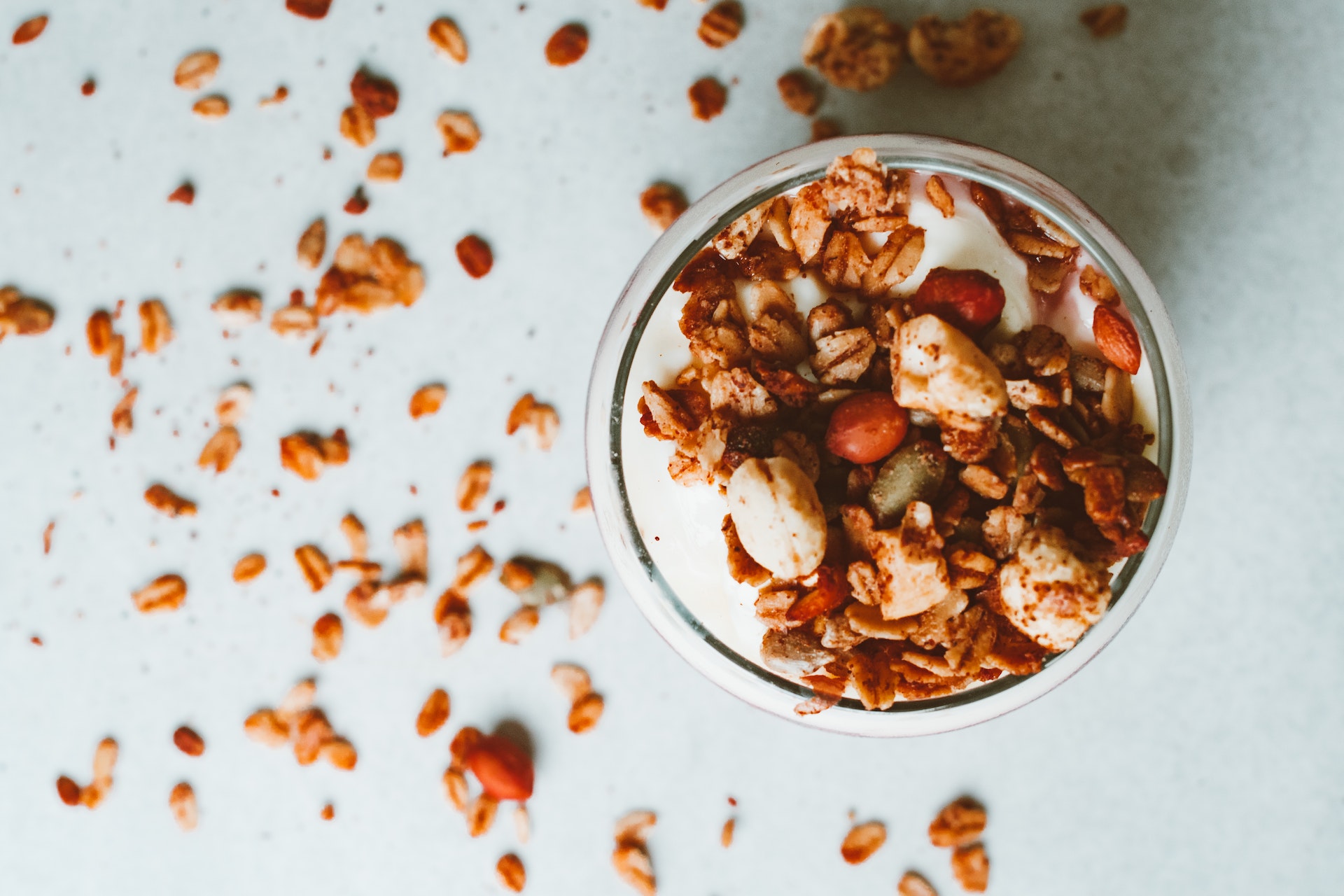Borders have been crossed and people have been connected in previously unthinkable ways thanks to air travel. The realities of long-haul travel are sometimes overlooked in the wonder of flying beyond the clouds. Healthy eating while flying, especially for long flights, is underrated. Good food choices before, during, and after your flight can make all the difference. Our pre-flight, on-board, and post-flight meal selections affect not only how we feel right away but also how we feel about the trip as a whole. This essay examines food and drink choices that might make the journey just as delightful as the final destination.

(Photo by Cottonbro Studio on Pexels.com)
Keep hydrated
The low humidity in the airplane cabin is largely to blame for the frequent issue of dehydration during flights. There are a number of strategies to prevent dehydration besides just drinking water throughout the flight. Excellent options for hydration include herbal teas, coconut water, and other hydrating drinks high in electrolytes. Avoid drinking wine and coffee, as these can cause severe dehydration. Consuming hydrated meals like oranges, cucumbers, and melons is also beneficial.
Carry a refillable water bottle, and don’t be afraid to ask flight attendants for refills to make sure you never run out of fluids. A high-quality moisturizer can also aid in preventing your skin from drying out. All of these steps taken together will help you avoid the common side effects of air travel, such as weariness, dry skin, and headaches, so that you arrive feeling more refreshed.

(Photo by Mikhail Nilov on Pexels.com)
Choose light, nutritious meals
Before a flight, heavy meals high in fat and simple carbohydrates may sound alluring, but they can make you feel uncomfortable, sleepy, and with digestive problems later on. Planning meals with lean meats like chicken, fish, or tofu along with whole grains, fresh veggies, and fruits will provide you with consistent energy without leaving you feeling lethargic. Constipation is a frequent problem while traveling and can be avoided by eating foods high in fiber, such as beans, lentils, and whole-grain bread.
If you can, choose a special meal when purchasing your ticket or discuss your dietary needs with the airline to ensure that your onboard meals meet your nutritional requirements. You can have satiating meals that enhance your welfare during your journey with some planning and cautious selection.
Supplement before and after your flight
Your body’s defenses can be taxed by travel, and the stress of travel might occasionally result in illness. Taking vitamins and beneficial nutritional supplements to help your immune system and your nutrition is essential. It will often happen that you can’t get enough calories from your in-flight meal or your packed snacks, so sipping on a nice calorie-dense drink before your flight is a life-saver.

(Photo by Mikhail Nilov on Pexels.com)”>Polina Tankilevitch on Pexels.com)
When it comes to vitamins and minerals, zinc, which is known to strengthen the immune system, vitamin C, and vitamin D can all be especially useful, especially if you’re going somewhere with little sunlight. B vitamins can maintain energy levels, and probiotics can maintain a healthy balance in your gut flora to lower your risk of experiencing digestive pain.
Avoid fast-food and processed snacks
Fast food restaurants and processed snack alternatives are frequently found in airports, but choosing these easy options might result in bloating, discomfort, and poor energy. You can keep an eye on what you’re eating by bringing healthy alternatives like protein bars, whole-grain crackers, mixed nuts, and cut-up fruits and veggies for long flights. Look for salads, wraps with lean proteins, or fresh juice bars if you need to purchase food at the airport.
Downloading applications that direct you to healthier meal alternatives in various airports is another way to prepare in advance. It helps maintain energy levels and keeps your attitude positive to pay attention to what you eat while traveling. Your comfort and overall trip experience will benefit from it.

(Photo by Roman Odintsov on Pexels.com)
Adjust to your destination’s time zone
Start acclimating to the time zone of your destination a few days before your flight to lessen these impacts. If at all feasible, eat and sleep according to the schedule at your destination. By gradually adjusting, you can lessen the effects of jet lag by synchronizing your body’s internal clock with the new time zone. When you first arrive, try to get some natural light exposure to help reset your biological clock. You should also keep eating at the customary local times. Using fresh, nearby ingredients can further promote adaptability and ease the transition process.
To make the procedure easier, use technology such as meal timing applications or jet lag calculators. By making thoughtful preparations, you can reduce the negative effects that jet lag has on your digestion and general wellbeing, enabling you to fully enjoy your visit.

(Photo by Vitaliy Mitrofanenko on Pexels.com)
Travel Tips: Healthy Eating While Flying
It takes a certain level of skill to navigate the long-distance culinary terrain. The deliberate choices and preparations suggested in this book are not just for your convenience; rather, they are a reflection of our knowledge of human physiology and how it relates to travel. Travelers can redefine their experience from merely enduring a long flight to one where well-being is not left at the departure gate by turning meal selections into strategic decisions. Healthy eating while flying is just as important as the tickets we purchase or the luggage we pack.
For More:
- On our site: Tips for First-time Flyers
- On our site: We have many travel tip articles for you!
– Cover photo by Gustavo Fring on Pexels.com.


